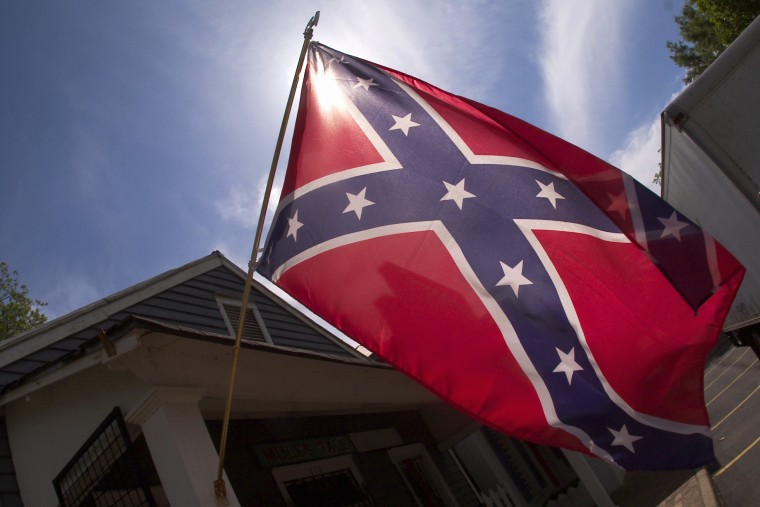As the Supreme Court nears the end of its term, some high-profile cases on health care, marriage, and capital punishment have not yet been decided. But today was a surprisingly busy day at the high court, which handed down six this morning, including an underappreciated case called Walker v. Texas Division, Sons of Confederate Veterans.
NBC News' Pete Williams reported:
The US Supreme Court ruled that Texas cannot be required to allow the Confederate flag on car license plates. The case dealt with how much control state governments can exert over slogans and messages on vehicle license plates. In the 5-4 ruling, the court said "just as Texas cannot require (Sons of Confederate Veterans) to convey 'the state's ideological message ... (the Sons of Confederate Veterans) cannot force Texas to include a Confederate battle flag on its specialty license plates."
The full ruling in the case is online here (pdf).
A group called the Sons of Confederate Veterans asked Texas to approve a specialty plate, featuring a confederate battle flag surrounded by the words, "Sons of Confederate Veterans 1896." The state declined, telling the organization that "many members of the general public find the design offensive," and associate the flag "with organizations advocating expressions of hate."
The Sons of Confederate Veterans sued, saying the rejection was a violation of the group's free-speech rights. The state disagreed, arguing that because license plates come from official government agencies, the Sons of Confederate Veterans had effectively asked Texas to endorse its logo. The public would see the Confederate battle flag on Texas license plates and perceive it as a message with official state backing.
The lower courts were split, and in a 5-4 ruling, the Supreme Court sided with Texas -- the state wasn't obligated to approve the group's request.
But the really interesting part was how the justices were divided.
As expected, the court's center-left justices -- Ginsburg, Breyer, Sotomayor, and Kagan -- sided with the state and against the Sons of Confederate Veterans. But to prevail, they needed at least one conservative.
Believe it or not, Clarence Thomas was the only conservative justice to side with the left. That's an exceedingly rare occurrence.
